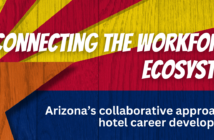The truth about robots in hospitality
by ANTON SAFONOV and MICHELLE SESSION
Venture into the transformative world of hospitality, where robots are not mere machines but catalysts for innovation and efficiency. In this realm, myths abound, but the truth is even more fascinating. Let’s demystify these notions and uncover the real impact of robotics in this dynamic industry.
MYTH 1: ROBOTS STEAL HUMAN JOBS
Fact vs fiction: The pervasive myth that robots are displacing human workers in hospitality overlooks a key aspect: augmentation, not replacement. These robots, designed to handle mundane tasks, enable staff to focus on higher-value activities that enhance guest experiences and personal service.
A new collaborative workspace: Picture a hotel where robots and humans work in tandem. Staff are relieved from repetitive chores, engaging more deeply in guest relations and creative tasks, thereby elevating the entire hospitality experience.
MYTH 2: ROBOTS LACK THE HUMAN TOUCH
Fact vs fiction: The belief that robots lack the warmth of human interaction overlooks their ability to add unique elements to the guest experience. These robotic assistants, while handling routine tasks, create opportunities for human staff to offer more personalized, attentive service, and add a touch of whimsy that delights guests, especially children.
Enhancing human connections: Imagine a scenario in a dining setting where robots not only serve but also entertain, bringing smiles and creating memorable moments for guests of all ages, enhancing the overall atmosphere and experience.
MYTH 3: ROBOTS ARE NOT SUSTAINABLE
Fact vs fiction: The assumption that robots are detrimental to the environment is being challenged by forward-thinking companies like RobotLab. Their commitment to sustainability is exemplified in their approach to robot design and maintenance.
Elad Inbar, CEO of RobotLab, shares: “At our Reinvention Lab, we’re not just repairing robots; we’re championing a sustainable future. Here, we extend the life of each robot, using recycled and repurposed materials, significantly reducing our environmental footprint.”
A green approach: In this lab, sustainability is a fundamental principle, not an afterthought – with each repair and refurbishment reflecting a dedication to environmental responsibility.
MYTH 4: ROBOTS HAVE NO IMPACT ON A COMPANY’S ESG SCORE
Fact vs fiction: it’s a misconception that robots, especially cleaning robots, don’t influence a company’s environmental, social, and governance (ESG) score. In reality, the eco-friendly technology of these robots, particularly their efficient water usage and energy conservation, can significantly improve a company’s ESG metrics.
ESG score enhancement: Cleaning robots with advanced filtration systems use water more efficiently than traditional methods, a key factor in environmental sustainability. This notable reduction in resource consumption can positively impact a company’s ESG score, which is increasingly relevant to investors and consumers.
Broader implications: Such improvements in sustainability practices through robotic technology not only benefit the environment but can also enhance a company’s market appeal and investment potential.
MYTH 5: ROBOTS CAN’T IMPROVE HEALTH AND WELLNESS
Fact vs fiction: The idea that robots have no role in enhancing health and wellness in hospitality settings is a misconception. Equipped with advanced technologies, these robots are instrumental in maintaining stringent cleanliness and hygiene standards, which are more crucial than ever.
Protectors of well-being: Visualize a robot traversing a hotel room with UV light, meticulously sanitizing every surface. These robotic cleaners aren’t just cleaning; they’re ensuring the health and safety of every guest and staff member, contributing significantly to public health.
MYTH 6: INTEGRATING ROBOTS IS A FUTURISTIC DREAM
Fact vs fiction: While integrating robots into hospitality may seem like a concept for the future, it’s a reality that’s unfolding now. The seamless incorporation of robots into traditional settings showcases that the future of robotics in hospitality is already here, enhancing efficiency and enriching guest experiences.
Today’s reality: Think of scenarios where robots work alongside human staff in a symbiotic relationship, combining technological efficiency with traditional hospitality practices, demonstrating the practical and present reality of robotics in hospitality.
A NEW ERA IN HOSPITALITY
Debunking these myths reveals an exciting truth: robots in hospitality are driving a significant transformation in the industry. They are not only enhancing operational efficiency but also enriching guest experiences and championing sustainability.
As we embrace this new era of technological synergy in hospitality, it’s time to recognize the immense potential of robots as partners in redefining service, sustainability, and guest engagement.
 Anton Safonov possesses nearly two decades of experience in multi-unit hotel operations. As co-founder and chief strategy officer at Aquarius Hospitality Solutions, Anton assists hotel clients in embedding sustainability and wellness into their operations. His experience with major hotel brands shows his commitment to service quality and profits. Anton advocates for women in hospitality through his work with Hertelier, underscoring his commitment to diversity and inclusion. As a US Navy Veteran with a B.S. in hospitality management, Anton drives positive change through his passion for learning and operational excellence. He is also a HTNG consultant member of American Hotel & Lodging Association.
Anton Safonov possesses nearly two decades of experience in multi-unit hotel operations. As co-founder and chief strategy officer at Aquarius Hospitality Solutions, Anton assists hotel clients in embedding sustainability and wellness into their operations. His experience with major hotel brands shows his commitment to service quality and profits. Anton advocates for women in hospitality through his work with Hertelier, underscoring his commitment to diversity and inclusion. As a US Navy Veteran with a B.S. in hospitality management, Anton drives positive change through his passion for learning and operational excellence. He is also a HTNG consultant member of American Hotel & Lodging Association.
 Michelle Jensen Session brings more than 15 years of hospitality experience as principal of Kensington Investment Group and co-founder of Aquarius Hospitality Solutions. Her expertise spans strategic planning, budget management, sustainability, and staff development. Michelle championed diversity and inclusion initiatives at UC San Diego, receiving the Diversity Champion award. She is an AAHOA HerOwnership member committed to advancing women hoteliers. Michelle facilitates training on leadership, HR, and environmental sustainability. Her passion for service excellence and community drives her work.
Michelle Jensen Session brings more than 15 years of hospitality experience as principal of Kensington Investment Group and co-founder of Aquarius Hospitality Solutions. Her expertise spans strategic planning, budget management, sustainability, and staff development. Michelle championed diversity and inclusion initiatives at UC San Diego, receiving the Diversity Champion award. She is an AAHOA HerOwnership member committed to advancing women hoteliers. Michelle facilitates training on leadership, HR, and environmental sustainability. Her passion for service excellence and community drives her work.






